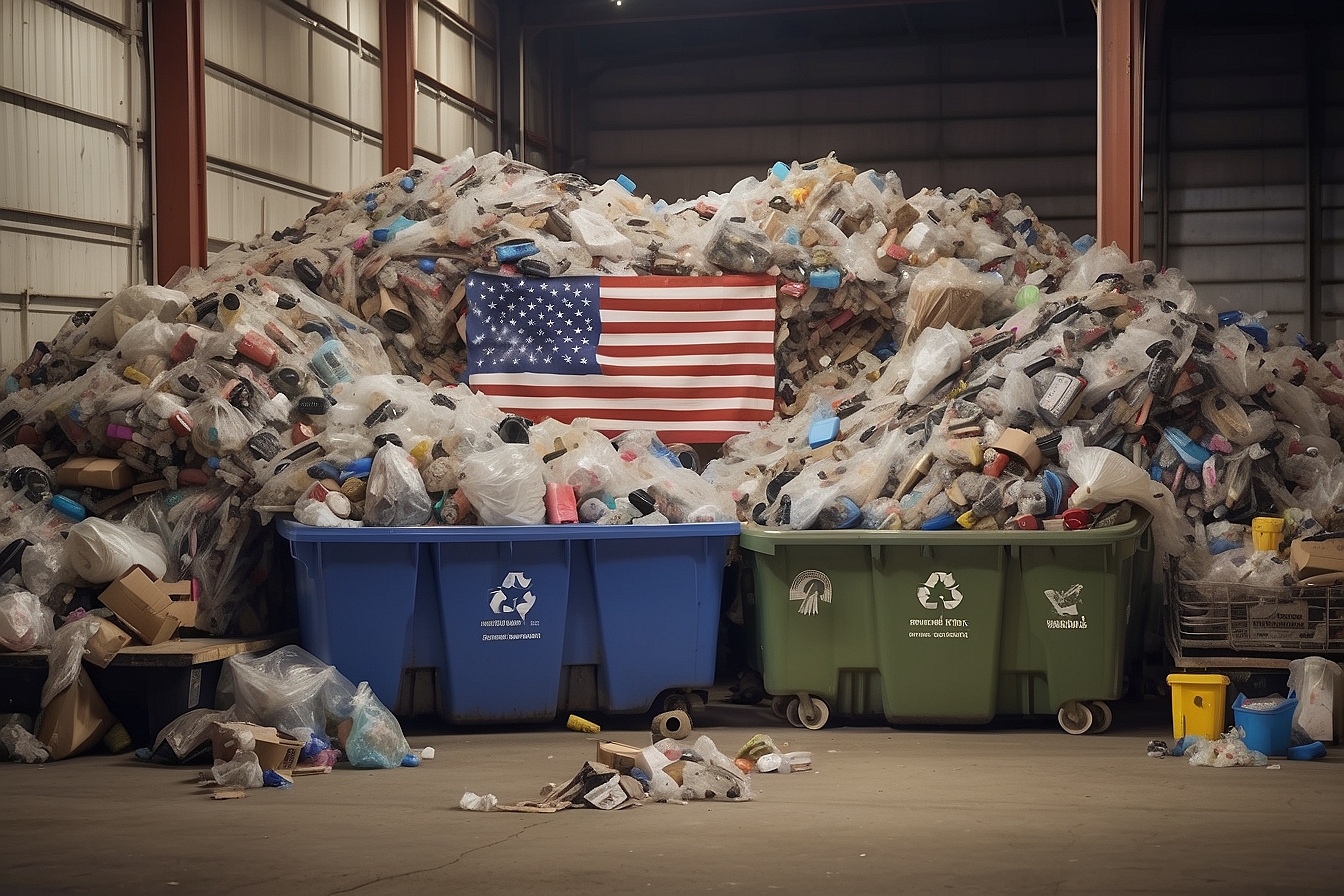Organising events can often lead to a rather disheartening amount of waste, which leaves many of us wrestling with an uncomfortable sense of environmental responsibility. We empathise with your concerns and have undertaken thorough research, uncovering that the average conference generates approximately 1.89 kilograms of waste per delegate, each day*.
Our feature brims with actionable advice on how to transform any social occasion into a paragon of eco-consciousness, significantly reducing the tide of needless rubbish.
Embark on a journey to host celebrations that respect our beloved planet!
Key Takeaways
- Choose venues that use renewable energy and encourage guests to travel in eco-friendly ways, like public transport or car sharing.
- Reduce food waste by planning menus carefully, controlling portion sizes, and donating leftovers to local food banks.
- Opt for materials that are recyclable or compostable and promote a circular economy by reusing event items instead of discarding them.
- Set up recycling stations at events and educate attendees on sorting waste to support sustainable practices.
- Provide sustainable swag made from recycled materials or digital alternatives to avoid unnecessary waste.
Understanding the Impact of Events on the Environment
Events have a significant impact on the environment, from carbon emissions to waste production. It’s important to understand these impacts in order to implement effective strategies for minimising waste in event planning.
Carbon footprint
Every action we take in organising events leaves a carbon footprint – from the energy used to power sound systems to the emissions from guests travelling to and fro. We strive for sustainable event management by continuously seeking ways to minimise these footprints.
Opting for digital invitations over paper, choosing venues powered by renewable energy, and providing eco-friendly transport options can all make a significant difference.
Our commitment extends beyond conserving energy; it also involves sustainable sourcing and waste reduction strategies. By selecting local suppliers and materials with lower emissions associated with their production and transportation, we help reduce the overall environmental impact of our events.
Let’s move onto how we can tackle another big issue: Waste production.
Waste production
In event planning, waste production is a significant concern for the environment. We need to focus on minimising the amount of waste generated during events. By using recyclable materials and sustainable food sourcing, we can reduce our environmental impact.
Additionally, providing composting options and embracing eco-friendly event management practices are effective ways to minimise waste at events.
To truly mitigate waste production, it’s essential to incorporate sustainable waste management strategies and encourage attendee contributions towards a zero-waste event. This can involve implementing smart waste management systems and offering sustainable swag and materials that support green event practices.
Strategies for Minimising Waste in Event Planning
To minimise waste in event planning, we can focus on reducing food waste through careful meal planning and portion control. Sustainable sourcing of materials and embracing circular economy principles can also play a significant role in minimising waste production.
Smart waste management systems and encouraging attendee contributions can further help to reduce the environmental impact of events.
Reducing food waste
- Careful menu planning to minimise excess food prepared.
- Partnering with local food banks to donate leftover food ensuring it doesn’t go to waste.
- Embracing portion control and serving meals in smaller, manageable sizes.
- Providing clear guidance on portion sizes for attendees, reducing over – ordering.
- Using compostable or reusable tableware to prevent excessive single-use waste.
Sustainable sourcing
- Identifying suppliers with strong environmental credentials
- Prioritising locally sourced materials to reduce transportation emissions
- Ensuring that products are ethically produced and environmentally friendly
- Considering the lifecycle of products, from production to disposal, when making purchasing decisions
Embracing circular economy principles
Embracing circular economy principles involves designing events and sourcing materials with longevity and reusability in mind, promoting a closed-loop system. By incorporating this approach into event planning, we can reduce the consumption of raw materials, minimise waste generation, and decrease environmental impact.
This process encourages thoughtful resource management, including the repurposing or recycling of event items to extend their lifespan and reduce overall waste.
Adopting circular economy principles not only supports sustainability but also presents an opportunity for innovative thinking in event design and production. It allows us to rethink traditional linear processes by embracing a regenerative approach that contributes to our conservation efforts while inspiring creativity in sustainable event logistics and eco-friendly practices.
Leveraging these principles shifts our focus towards efficient resource use and waste reduction throughout the entire event lifecycle.
Facilitating recycling and upcycling
- After embracing circular economy principles, we can further reduce waste by facilitating recycling and upcycling. These strategies play a crucial role in maximising the lifecycle of materials and minimising environmental impact.
- Setting up clearly labelled recycling stations at the event venue encourages attendees to dispose of their waste responsibly, promoting a culture of sustainability throughout the event.
- Collaborating with local recycling facilities ensures that collected materials are properly processed, thereby reducing the overall environmental footprint of the event.
- Upcycling items such as decorations and promotional materials gives new life to existing resources, reducing the need for additional production and lowering waste generation.
- Encouraging vendors to use recyclable or biodegradable packaging for their products contributes to a more sustainable event ecosystem.
- Providing education and guidance on how to reuse and repurpose event – related materials empowers attendees to actively participate in waste reduction efforts.
Smart waste management systems
After facilitating recycling and upcycling, we integrate smart waste management systems to further reduce the environmental impact of events. These systems leverage technology to track and manage waste more efficiently, enabling us to monitor and optimise our waste disposal processes throughout the event.
By using sensors, compaction equipment, and data analytics, we can accurately measure our progress in reducing waste production and improve resource allocation. With such innovative approaches, we move closer towards achieving zero-waste goals at events while setting an example for sustainable event planning.
Implementing smart waste management aligns with our commitment to minimising the environmental footprint of events. It not only enhances efficiency but also promotes a culture of responsible consumption among attendees and suppliers.
Encouraging attendee contributions
- Request attendees to bring reusable water bottles and coffee cups to reduce single-use plastic consumption.
- Encourage participants to volunteer for waste sorting during the event to ensure proper recycling and composting.
- Invite guests to share transportation by carpooling or using public transport to decrease carbon emissions from travel.
- Provide platforms for attendees to suggest innovative ideas for reducing waste at future events, fostering a community-driven approach to sustainability.
- Ask participants to participate in post – event surveys that include feedback on waste reduction initiatives, fostering a sense of shared responsibility for environmental impact mitigation.
- Urge attendees to dispose of waste responsibly and use designated recycling and compost bins throughout the event space.
Sustainable swag and materials
When considering sustainable event planning, it’s essential to focus on using eco-friendly and ethically sourced materials for giveaways, known as “swag.” This ensures that the environmental impact of your event extends beyond the day itself. Here are some effective approaches to utilising sustainable swag and materials:
- Opt for items made from recycled or upcycled materials such as tote bags, pens, or notebooks.
- Consider eco-friendly alternatives like bamboo or stainless steel straws instead of single-use plastic ones.
- Choose items that serve a purpose, encouraging reuse and reducing unnecessary waste, such as reusable water bottles or metal lunch containers.
- Embrace digital swag options like e-tickets, online vouchers, or downloadable content to eliminate physical waste altogether.
- Partner with ethical and environmentally responsible suppliers who share the same commitment to sustainability as your event.
Conclusion: The Importance of Sustainable Event Planning in Minimising Waste
Implementing sustainable event planning practices is crucial in reducing the environmental impact of events. By embracing eco-friendly strategies like reducing food waste and choosing sustainable materials, we can minimise our carbon footprint.
Encouraging attendee participation and implementing smart waste management systems are essential for successful waste minimisation. Embracing a circular economy approach can lead to significant improvements in event sustainability.
Sustainable event planning plays a vital role in preserving our environment for future generations.
FAQs
1. What is sustainable event planning?
Sustainable event planning focuses on organising events that minimise environmental impact, by reducing waste and carbon footprint.
2. How can I make my events more eco-friendly?
Adopt green event planning strategies, such as using sustainable event design and production methods that aim for zero-waste.
3. What steps should I take to plan an eco-conscious event?
Implement eco-conscious practices like selecting biodegradable materials, minimising energy usage, and ensuring all aspects of the event are designed to reduce waste.
4. Is it possible to have a zero-waste event?
Yes! Zero-waste event management involves careful planning around resource use with the goal of no trash being sent to landfills or incinerators.
5. Can minimising waste actually save money in event planning?
Definitely! By focusing on sustainability in your sustainable event production, you often cut down costs associated with material purchases and waste disposal.





